About PC CARES care packages
It all started when…
In March 2020, the COVID-19 pandemic threw a wrench in the plan to gather people from multiple sectors of the community for learning circles. We started sending packages to the people who’d attended a learning circle in their village as a way to stay in touch. After getting a positive reaction to the care packages, we decided to keep sending them regularly to anyone who signed up to receive them. The care packages included goodies and reminders about the wonderful things we can do for wellness in our communities.
Who received care packages?
Care packages were designed for adults who support youth in rural Alaska, especially those who attend learning circles virtually or in-person. PC CARES packages were for mentors in the lives of young people, for example: A basketball coach, dance group leader, Elders who make time to teach youth, a young adult role model, a treasured teacher, etc.
PC CARES Care Packages were mailed every couple of months, with invitations to join a private Facebook page for more consistent exchanges of ideas and support. Over 2 years, PC CARES sent Care Packages to 493 recipients in 49 communities in Alaska, with a total number of 1,319 packages sent.
What did we learn?
We collected evaluation data via both surveys and interviews with Care Package recipients. The most common comment from recipients we interviewed was how helpful the Care Packages were, and what a pleasant surprise it was to receive them. In surveys, the overall ratings from surveys were positive: (1) recipients were happy they received the packages, (2) they found the information clear and understandable, (3) they would like to take actions suggested in the packages to make positive changes for youth around them. Care Packages provided a bridge to connect PC CARES Learning Circles participants to evidence-based wellness actions they can take during the time when people could not physically socialize. The packages also reminded participants about information from the latest Learning Circles. Packages could be used as additional review materials for participants to implement practical suicide prevention methods.


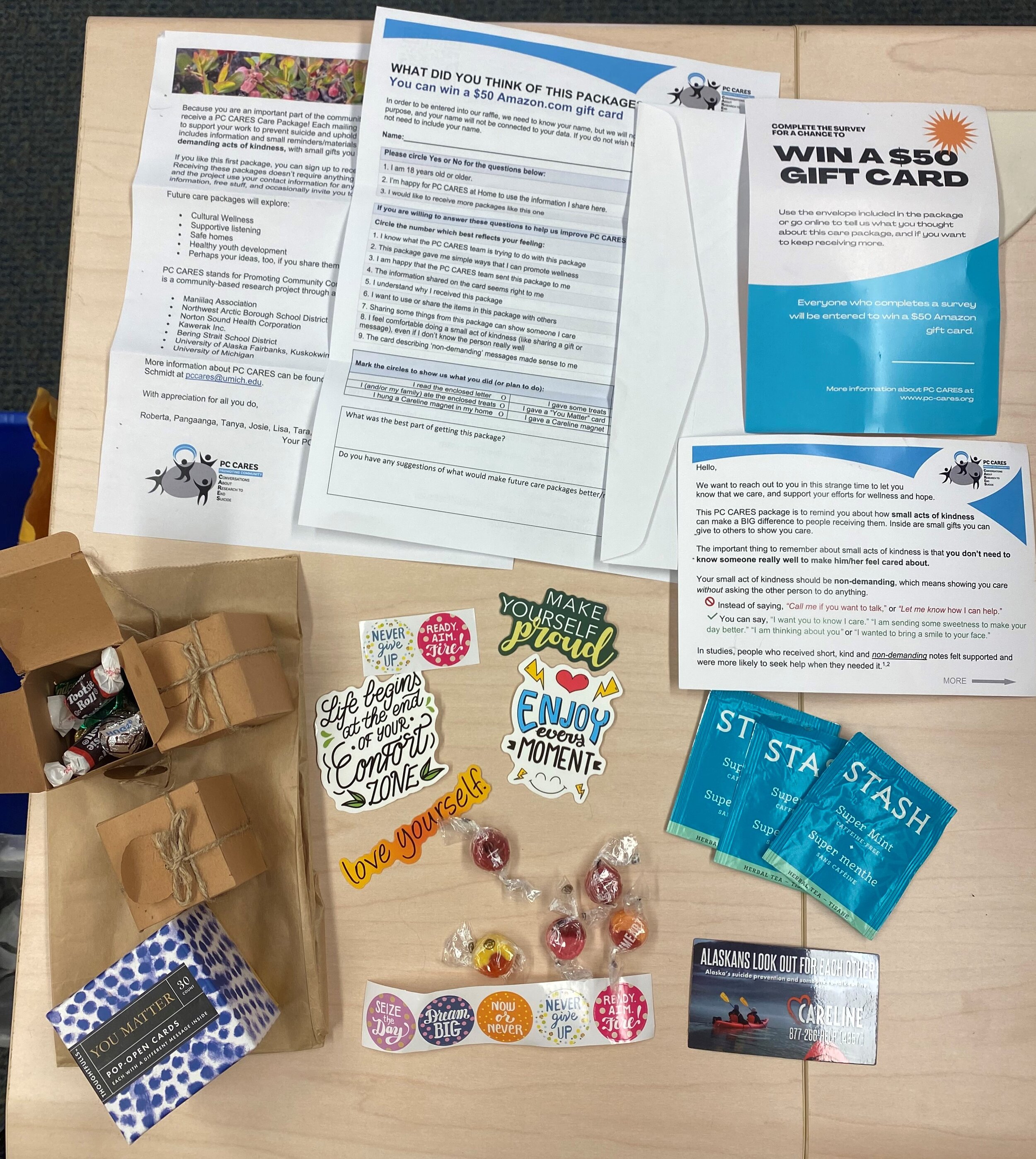

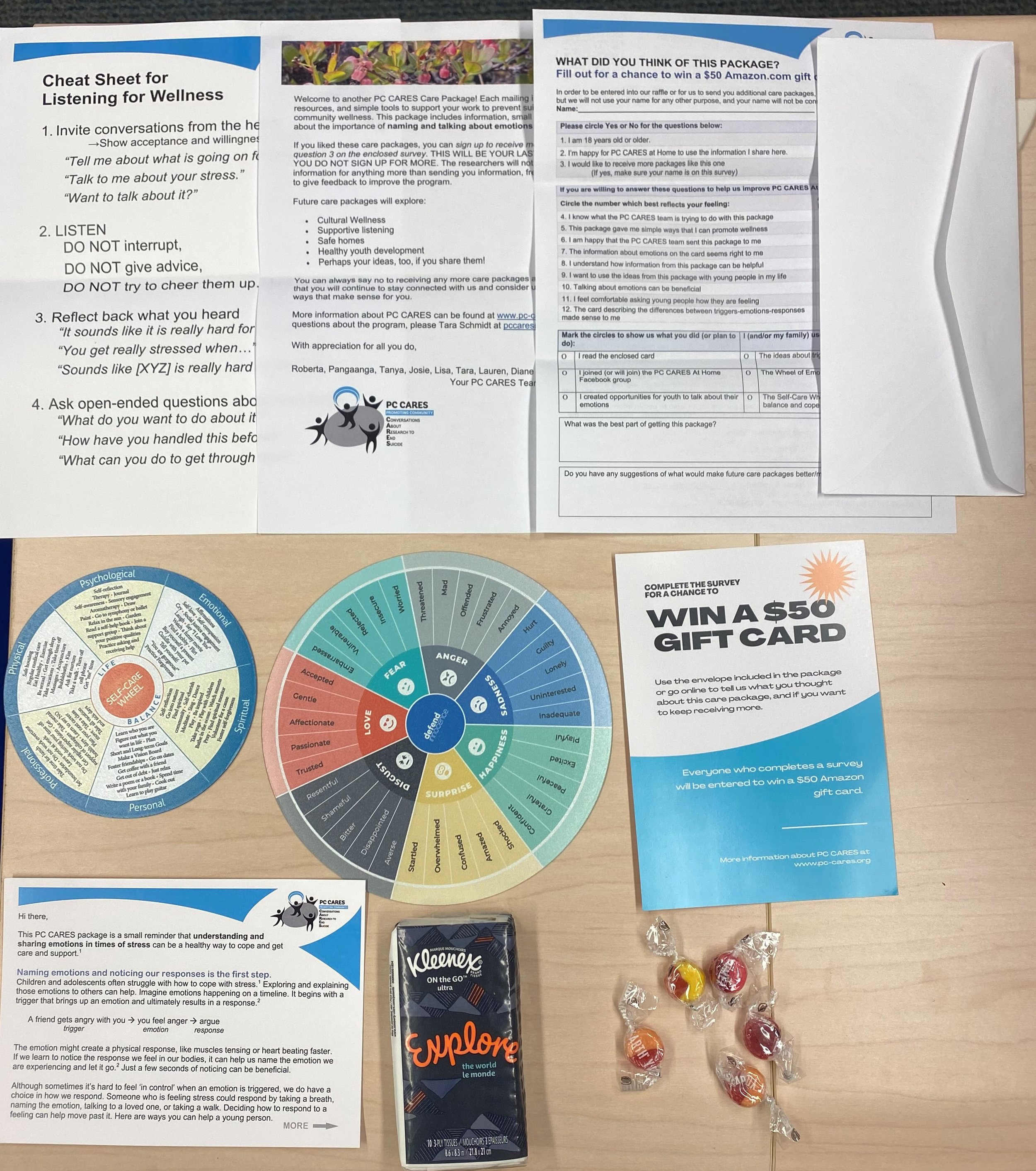
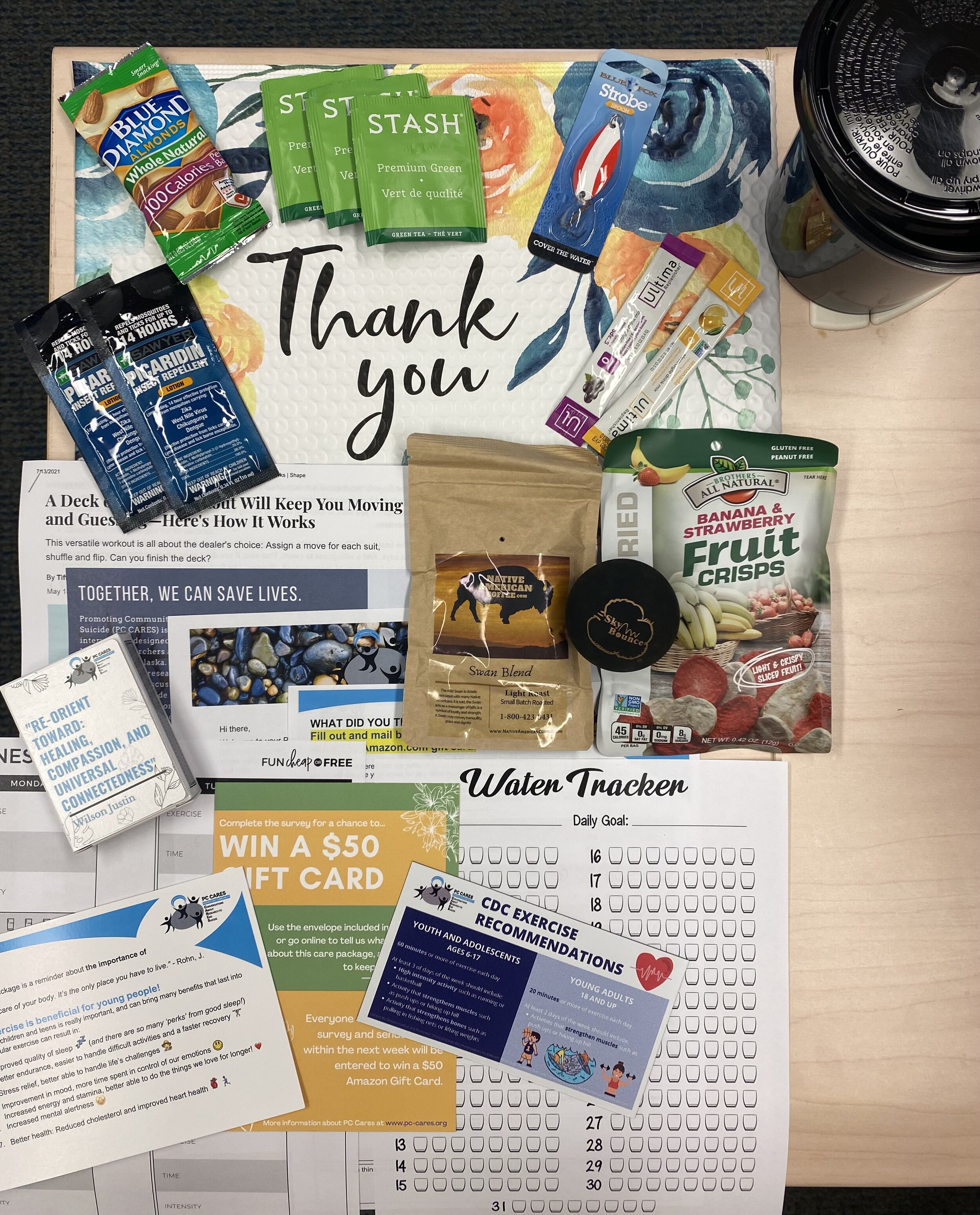
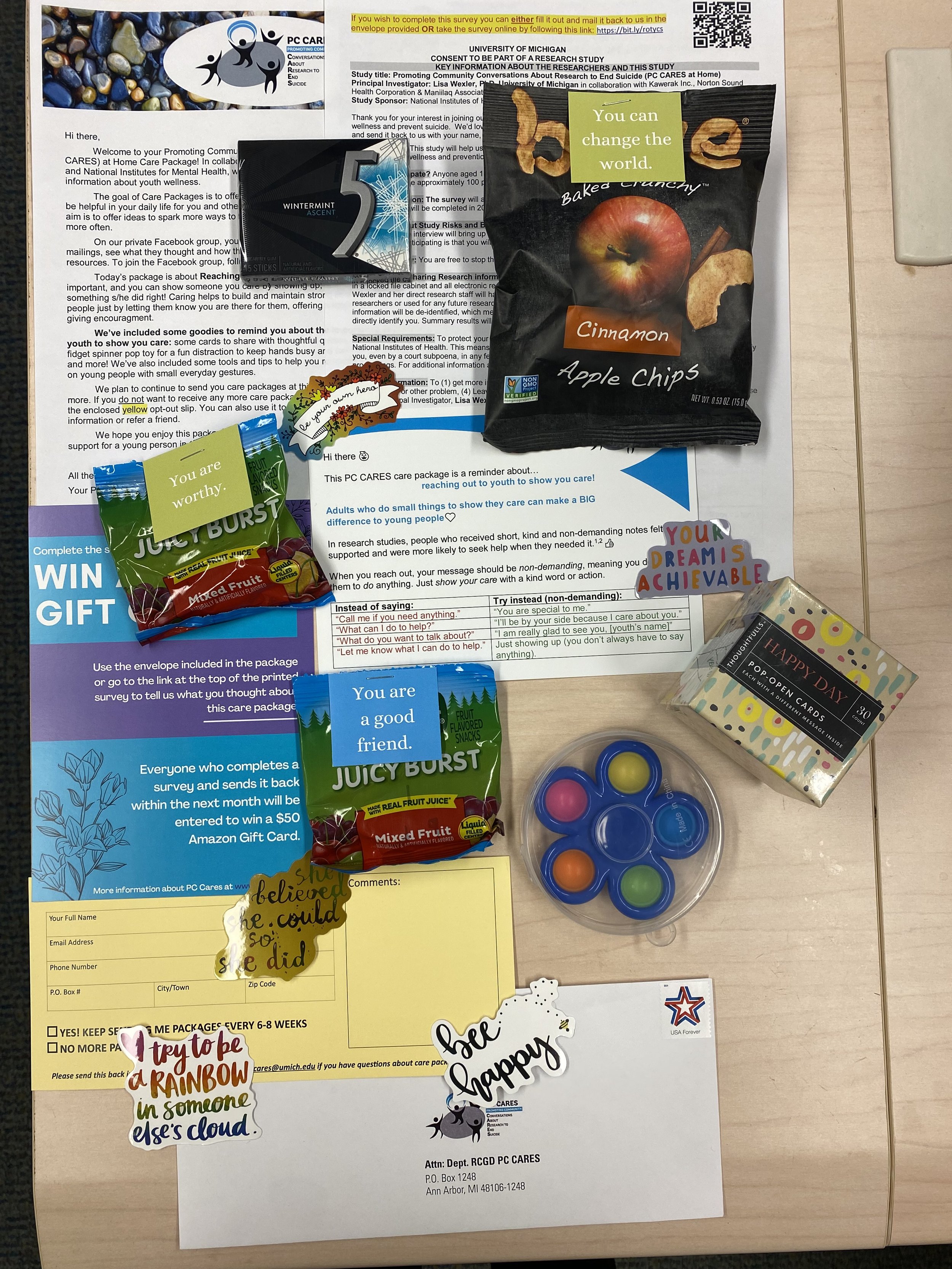
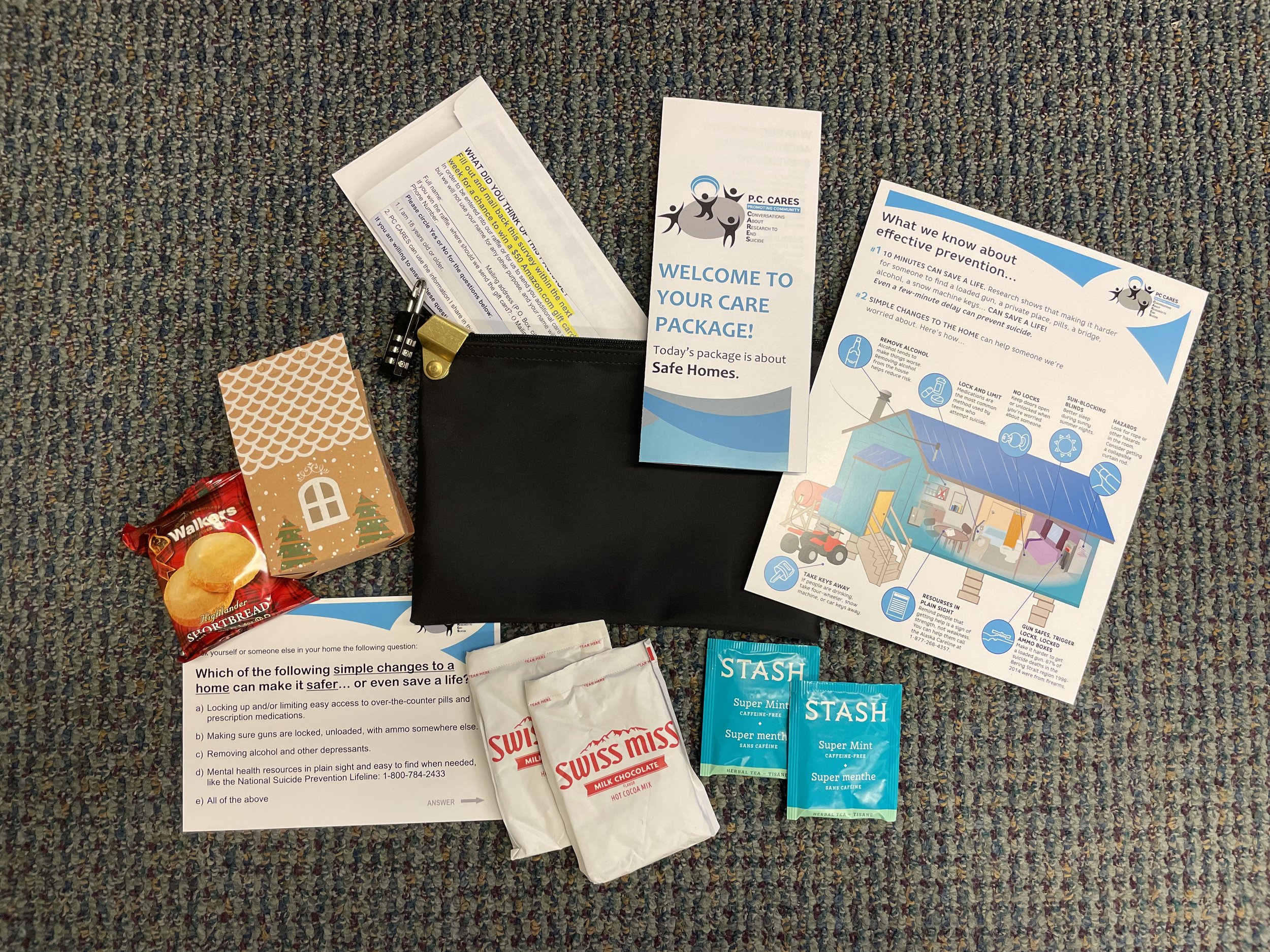

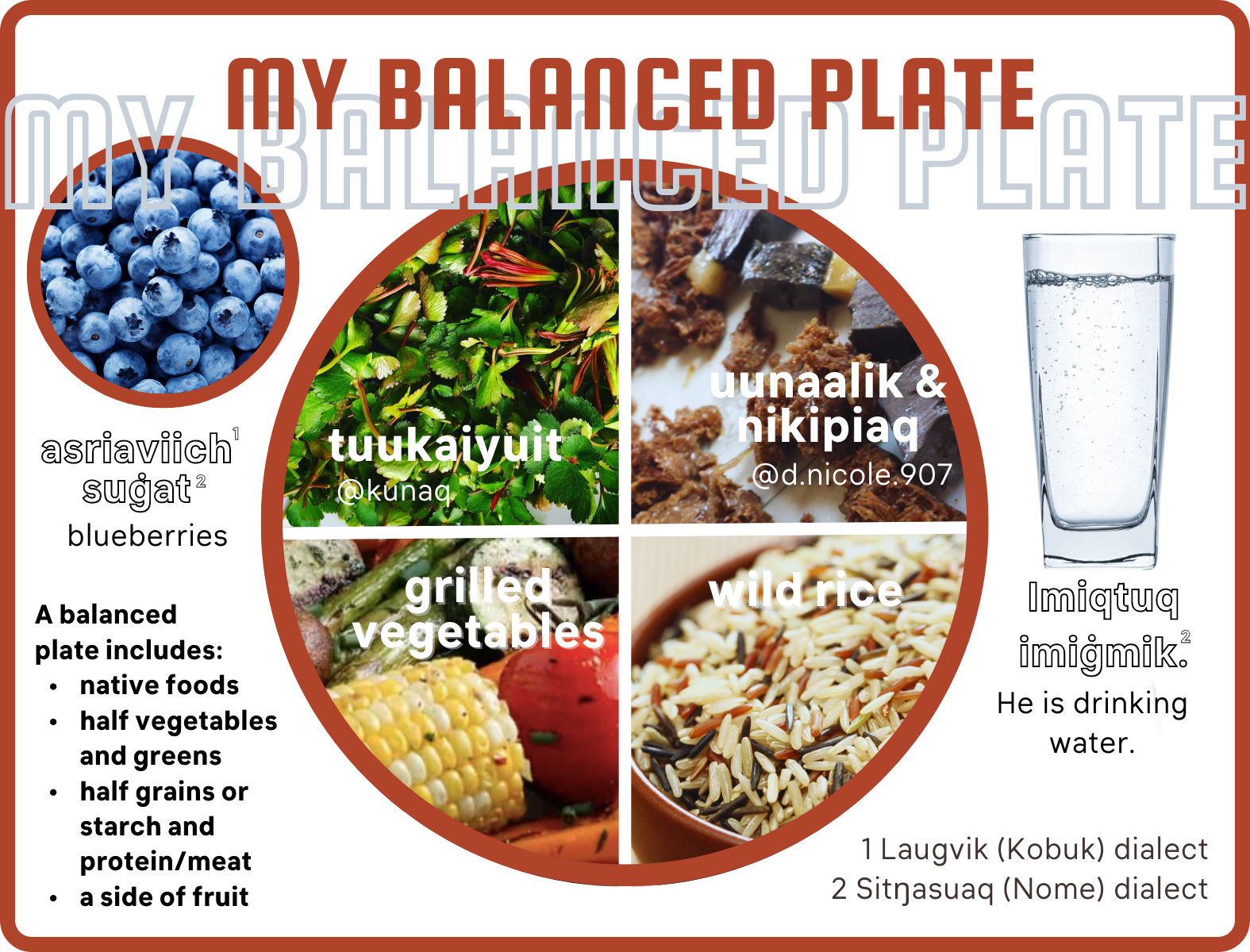
A wise person once said, “The shortest distance between hope
and despair is a good night’s sleep.”
Getting restful sleep improves mood 😊 and helps a person stay in control of their actions. Good sleep makes learning, doing activities, and problem-solving more manageable. Sleep gives our bodies a chance to repair, replenish, and restart, and helps our brains 🧠 prepare for a new day. Young people and children especially need healthy sleep. Getting enough sleep, regularly and without interruption, is ideal. 🛌 We included a magnet that shows how much sleep is enough for different ages.